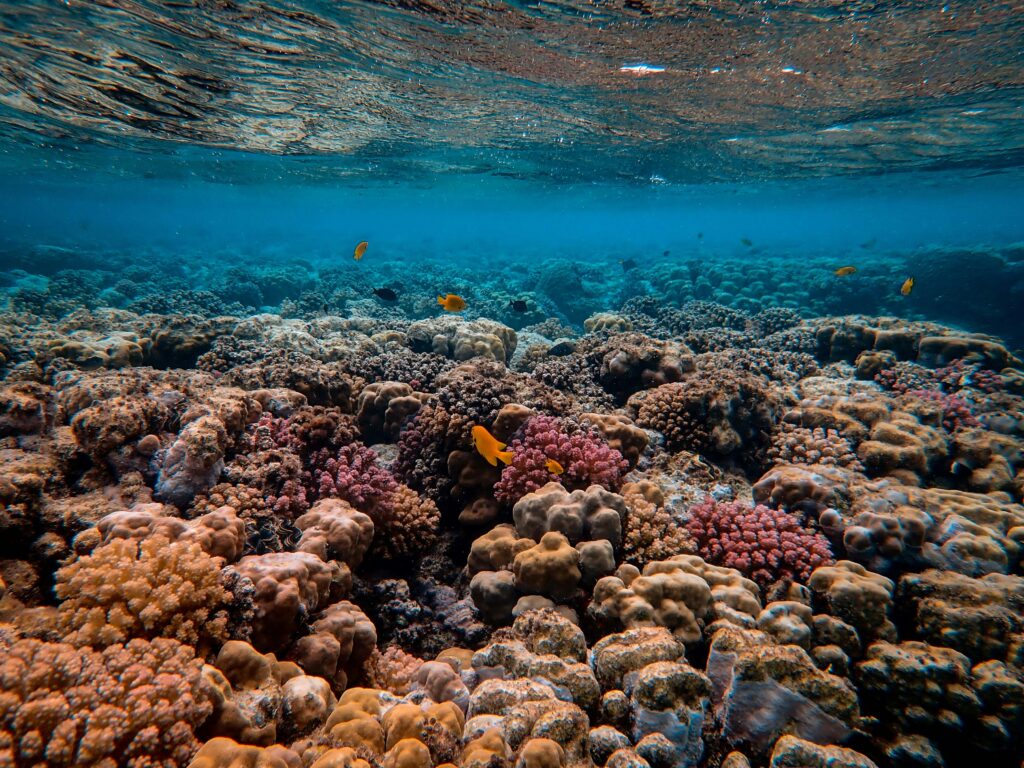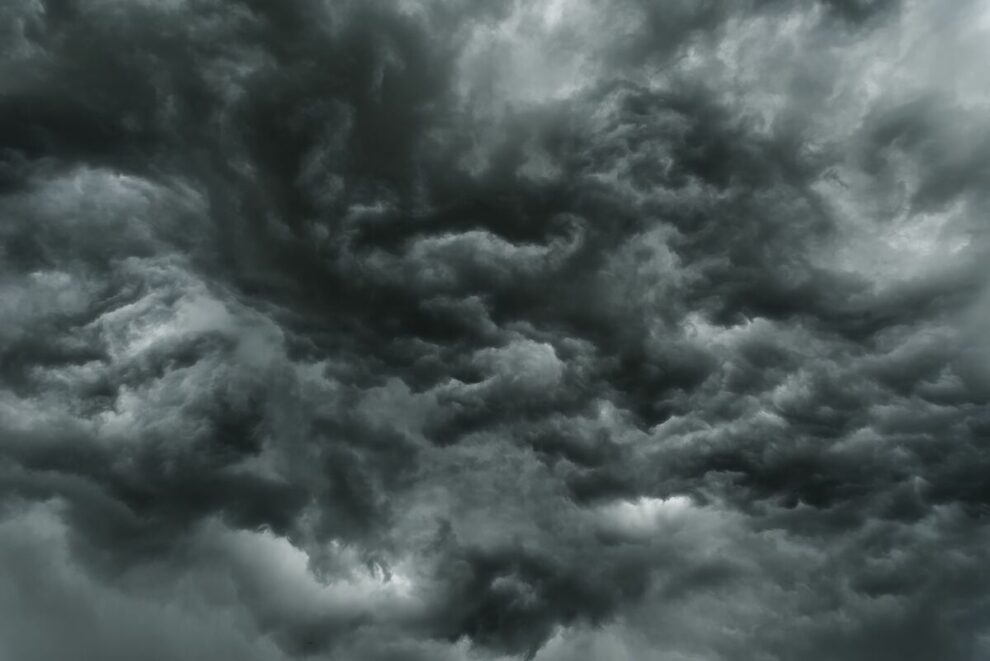One of the favourite alarmist gotchas after the extinction of polar bears, disappearance of Arctic ice and death of coral reefs is the supposed irrefutable increase in the frequency and ferocity of hurricanes. Which alas is also a no-show. As Matthew Wielicki wrote, “I’ve been monitoring the Colorado State University (CSU) real-time hurricane dashboard for weeks now… Scroll down to the storm-by-storm table and the Accumulated Cyclone Energy (ACE) plot; they tell a story that’s far from the ‘supercharged’ nightmare we’ve been sold.” On the contrary, few storms and limited energy. And yet “the media machine churns out alarmist headlines (while never mentioning the hurricane drought)”. And when they do, they say it’s not proof of a hurricane drought. Which is getting rather silly. We discuss the ACE aspect and the math below. But first let’s blow away the coverage.
At some point it becomes rather hard to ignore the raging hurricane not blowing the roof off. Not that they didn’t try. In July an alert reader/viewer emailed us a Tallahassee Democrat story headlined:
“Enjoy quietest start to hurricane season since 2009; but back half could be brutal”.[';pp
Yes. And monkeys could fly out of our armpit. But we’re not reporting it until we see some evidence.
Alarmists love bad weather. In June Reuters “Sustainable Switch” emailed triumphantly that:
“Central and southern China were on high alert for more flash floods on Friday as the annual East Asia monsoon gathered pace and extreme rainfall threatened disruption in the world’s second-largest economy. Extreme rainfall and severe flooding, which meteorologists link to climate change, increasingly pose major challenges for policymakers.”
Which meteorologists make the link? Not at the IPCC which, despite its polemical leanings (and raging predictions including as Wielicki notes elsewhere on hurricanes), insists on some actual evidence at least in its physical science working group, hence the infamous Chapter 12 Table 12 in the latest Assessment Report whose list of demonstrated increases in bad weather is mostly blank. But no. It must not be.
In mid-August Bloomberg Green peddled “The new science of hurricanes” in an email teasing to a story about:
“How Climate Change Is Fueling Stronger, Wetter and More Destructive Hurricanes/ As ocean temperatures rise, tropical cyclones are becoming more powerful and unpredictable.”
Except the bit where they don’t show up. At some point people notice this “new science” is kind of feeble in real-world terms and you have to say something. And not, as The Atlantic “Weekly Planet” wrote in July, “Hurricane Science Was Great While It Lasted” because “The U.S. is hacking away at support for state-of-the-art forecasting.” Rather, because its predictions weren’t worth a dime let alone billions. (Likewise the Daily Mail’s “Hurricane Erin shifts path as millions brace for life-threatening waves” except they didn’t.)
Thus Scientific American in June thundered confidently about:
“Why This Hurricane Season Has Experts on Edge/ Predictions for an above-average number of storms, communities that are still recovering and cuts to the National Weather Service have meteorologists and other experts worried about this hurricane season”.
But this month it finally grudgingly emailed that “Hurricane activity in the Atlantic basin is historically at its peak on today’s date – but not this year. Here is why.” And we thought no, let us guess, it’s because climate change is intensifying hurricanes so it’s just a blip. But in the spirit of open-mindedness, we clicked the link and:
“In May, as Atlantic hurricane season loomed, meteorologists worried that above-average tropical activity, combined with cuts to the federal government’s weather agency, could result in disaster. But so far, the season’s effects have been mild. And although September 10 has historically marked the peak of Atlantic hurricane activity, the basin has gone nearly two weeks with nary a tropical storm in sight—and none expected during the coming week either. Still, experts caution that the current lull in tropical activity doesn’t mean that this year’s threat of hurricanes has passed or that forecasters’ predictions about this season were wrong.”
So hurricanes not happening doesn’t mean hurricanes aren’t happening and the fact that our predictions were wrong doesn’t mean our predictions were wrong. As we feared. And the article continues:
“Such a stretch of tropical quiet isn’t particularly strange, says Matthew Rosencrans, a meteorologist and lead hurricane season forecaster at the National Oceanic and Atmospheric Administration’s National Centers for Environmental Prediction, but it’s rarer to see such a lull right over the traditional peak of hurricane season. Rosencrans says that the last September 10 with no tropical storm activity at all was in 2016.”
So it’s not strange though it is. Have you got it now?
Wielicki concludes his piece with another of those calls for data-driven discussion that shouldn’t be necessary but evidently are:
“A flat ACE through peak hurricane season doesn’t debunk the climate’s role in hurricanes. But it demolishes the oversold tale: ‘Warm world = nonstop monster storms, every year.’ Climate is about long-term stats, and 2025 exposes the folly of one-variable hype. This gap matters. It erodes public faith in science when predictions flop and headlines scream anyway. It fuels wasteful policies chasing phantom threats while ignoring real resilience needs, like better infrastructure. The lesson? Always verify against data, not dogma. Seasons like this remind us: Nature doesn’t follow scripts. If we want credible climate discourse, let’s demand narratives that match the records.”
Oh. That again.



These people reveal themselves with every word they utter, for example how do budget cuts at the National Weather Service effect the frequency or strength of hurricanes and how pray tell do "policy makers" effect hurricanes hitting China, thus demonstrating their statist bias. Then in the very last sentence they claim a need for better "narratives", understanding that the word narrative is very often interchangeable with the term bullshit!
Yesterday’s headlines were about “the most powerful cyclone of the season” near Hong Kong. I’m pretty sure that every season has a most powerful cyclone of the season.
I’m well appraised of everything hurricane by following Ryan Maue on Weather trader..
$50 per year
Saved the USA a ton of $$$